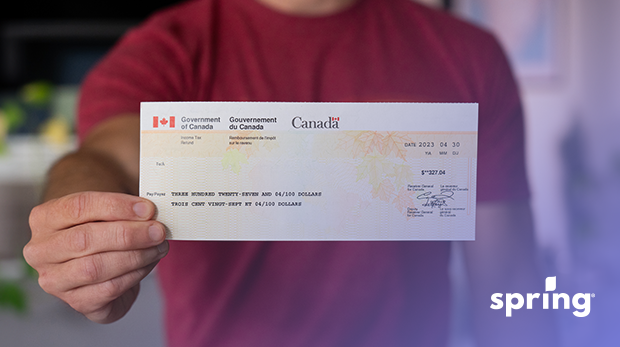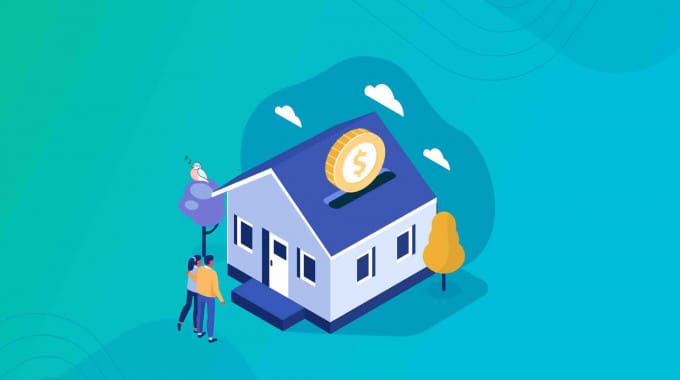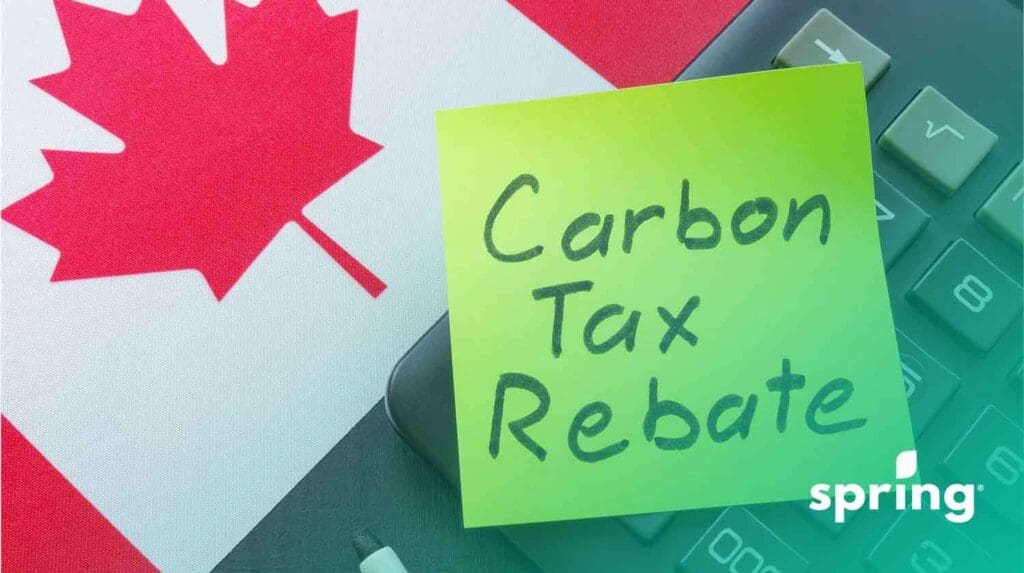Mobile Home Mortgages
While mobile home mortgages and modular home mortgages are different than traditional mortgages, you are still able to get them for one location. The financing options available for a mobile home depend on the circumstances in which you are purchasing the home. Whether you own the land or are paying a rental fee on leased land makes a difference.
Traditional Mortgage
Getting a traditional mortgage on a mobile home can often be difficult but it is a possibility if you own the property that you are trying to put the mobile home on, or are buying a property with a mobile home on it. This is normally the ideal option because traditional mortgages often have much lower interest rates than other types of loans.
Personal Loan
Getting an unsecured personal loan or line of credit can also be an option to purchase a mobile home. However, using this option often doesn’t have as high of a limit as a chattel mortgage. Getting a personal loan for a mobile is often only doable if the cost is $50,000 or less, but some may go as high as $100,000. While a personal loan often has higher interest rates than a traditional mortgage, it is often the same interest rate as a chattel loan. The main difference between chattel loans and personal loans is that they are secured to the house.
Chattel Loan
A chattel loan is similar to a traditional mortgage, but it is set up similarly to a secured personal loan. It is sometimes referred to as a personal property lien. This type of loan is usually given to someone who is purchasing a mobile home on leased land, such as in a mobile home park.
These types of loans typically have a higher interest rate but can also be open loans, which is why they resemble a secured loan. With chattel mortgages, you still have to renew every few years, whichever term you sign for, but you can often renew early because there are no penalties.
Also, if you move the structure, the mortgage transfers with you because it is attached to the building, not the property. Unlike a traditional mortgage, you can put money on the principal of a chattel mortgage whenever you like.

Price of Mobile Homes in Canada
Pinpointing the price of a mobile home in Canada is difficult. It really depends on where you live, if you are purchasing brand new or used, and if the mobile is on leased land or on land for purchase.
In general though, the purchase price of a mobile home can range anywhere from $50,000 to $500,000. It mostly depends on the cost of housing in your area, but mobile homes are generally $200,000 – $300,000 cheaper than your average single family home.
Like other types of homes, mobile homes (site-built homes) are covered under the CMHC (Canada Mortgage and Housing Corporation) insurance, and you can purchase a mobile home with only a 5% down payment if you are a first-time home buyer. Because mobile homes are so much cheaper than traditional homes, many Canadian first-time home buyers are starting to move in this direction.
This also makes financing options easier to find. The more people looking to purchase a mobile, the more likely lenders are to provide financing. Especially since these builds are evolving from wooden blocks to steel frames, they’re even making tiny homes of blocked wood and steel frames.
Buying a Mobile Home
When it comes to purchasing a mobile home, it is important to remember that there are certain regulations the home must meet before you purchase it. Every province has different regulations in regards to what type of mobile homes that are allowed to be put on properties. It also has to meet the zoning requirements for where you are putting it.
If you have purchased a piece of land, depending of where that land is located within Canada and within the municipality will dictate whether you can put a mobile home on the land, as well as what type of mobile home. If a mobile home is allowed and you are purchasing a new mobile home, this won’t be as much of an issue. However, if you are purchasing a used mobile home, especially in a private sale, you need to verify that it meets all of the zoning requirements before you finalize the sale.
When purchasing a mobile home for a mobile park, the home will also need to meet the park’s particular zoning requirements. Once the home is in the park, you can normally make any additions or add any buildings you may want, for reasons, of course. The park management will let you know if they have any special requirements.
Financing a Mobile Home with Land
If you are purchasing land with an already existing permitted mobile home on it, then you would normally go the traditional route of getting a mortgage. If it is your first home, you likely only have to put 5% down, but if it is not, you would likely need 20% down. It is likely to be the easiest type of mobile home loan to get as long as you have a good credit score and meet the other mortgage requirements. You should be able to go through any lender for this type of mortgage.
Financing a Mobile Home in a Park
Financing a mobile home in a Park isn’t too tricky as long as the land is owned. When it is leased, this type of homesite gets tricky. When looking for a mortgage on a mobile, not all banks will give you a mortgage. Some banks like the Royal Bank and TD Canada Trust do give mobile mortgages, but different lenders like credit unions and alternative lenders often are more lenient when it comes to chattel mortgages, which is likely the type of mortgage you would get.
Mobile Home Mortgages on Leased Land
It is even trickier to find mobile home financing options for a unit located on leased land, whether it’s single-wide or double-wide. The length of the lease makes a big difference to a lender. If they are short leases of 10-15 years, it is much more difficult than, say, an 80-year lease.
Generally, the same banks that will finance units in mobile home parks will also finance units on leased land, just make sure to get as much information as you can regarding your lease. Your real estate agent will be able to find out any information regarding the lease. Otherwise, you can talk to the park management if you do not have a real estate agent; they should be able to answer any questions that you may have as well.
General Information Regarding Mobile Home Financing
Mobile, or manufactured homes, can be much more difficult to finance, and it’s not just because of the land beneath them. While oftentimes, that can make things more difficult because the bank doesn’t have the land to fall back on, it’s mainly because of how they are built.
Because they are built so much differently than single-family homes, they often age faster than traditional housing. Having a shorter lifespan makes it difficult for a bank to justify lending you the money over a 25-year period. They may also require an appraisal to verify that the structure is worth what the assessment says it is worth. This also verifies that the lender will get a return on their investment, and the structure is worth purchasing.
CMHC Mobile Home Rules
When it comes to mobile home purchases, they can, in fact, be covered by CMHC insurance. This is insurance for the loan in case the buyer can no longer make their payments. It has nothing to do with the type of structure itself. However, standard CMHC requirements must be met.
What about a Manufactured Home?
While it may sound strange, manufactured homes are actually a general term that includes modular homes and mobile homes. The difference between the two is the code the manufactured home has. If the code on the home is A-277, then it is considered to be a modular home, whereas a Z-240 is a mobile home. The term mobile home, though, is used interchangeably between the two, and all the same financing rules apply.

Pros and Cons of Purchasing a Manufactured / Mobile Home
Many Canadians who purchase a mobile home do so because it is much cheaper than a traditional home, but there are other things to consider before you make your final informed decisions.
Pros:
When considering purchasing a mobile home, the most obvious plus is that it is considerably cheaper than a traditional home. This is usually because you don’t own the land that the structure is on, and it is built to a different code than that of your average single-family dwelling.
Another plus when it comes to purchasing a mobile home, is that if you put it on land with permanent foundation, it is more easily movable than a traditional home that, depending on how it’s built, would need to be demolished. You can resell it just as it’s entity instead of having to sell the land with it.
Cons:
While there are many positive aspects to purchasing a mobile/modular home, there are also some negatives. The first is that because mobile homes are on leased or rented land, they are considered to be personal property, unlike a home on land, which is more often considered real property. If a mobile home is found on land you own, then it will be considered real property. The problem with a mobile/manufactured home being considered personal property is that it can depreciate in value. We tend to see less of that these days, though, because more people are turning to mobile homes due to their affordability.
Another negative aspect of owning a mobile home is that it can be much more expensive to finance than a traditional home because you do not own the land. This is a much larger financial risk for lenders, so they tend to charge higher interest rates. It can also be more difficult to find a lender willing to finance a mobile home. Very few banks will, most credit unions do, but not all alternative lenders. If you are having trouble finding a lender, though, you can go through a mortgage broker.
If you own a mobile that is in a mobile home park, where the land is owned or leased, even though you own your own home, you still have a landlord. This is usually the park owner or the park manager. There will likely be certain rules you have to follow regarding noise bylaws, pets, and how you keep your yard. There is also normally a pad rental fee paid monthly to the park owner.
Pros and Cons of Mobile/Manufactured Home Financing
When it comes to getting manufactured home loans, you really have 3 different options, but many people tend to go with a mortgage broker.
Traditional Bank
Getting a mobile home mortgage with a traditional bank is pretty tricky but definitely not impossible, it really depends on the specifications of the mobile that you are purchasing. That being said, traditional banks usually have the best interest rates, and you may even be able to get a traditional mortgage instead of a chattel mortgage.
Some negatives would be that you are locked in if you get a traditional mortgage, and you can’t refinance early like you could with a chattel mortgage. Traditional banks also require a lower debt-to-income ratio and a higher credit score than other lenders. They often don’t like to go above 40% of your income going towards debt, whereas other lenders will go up to 50%. Overall, though, getting a mobile home mortgage is very similar to getting a regular mortgage through a traditional bank, and whichever lender you choose, you are most likely going to have to get CMHC insurance with a maximum amortization of 25 or 30 years.
Credit Union
If you are unable to go with a traditional bank, a credit union is also a great option. If you have already banked with your local credit union, then your chances of getting approved are higher. Also, a higher number of credit unions will give out mobile home mortgages compared to many banks. While they sometimes have higher interest rates, they are often quite flexible, and with a chattel mortgage, you can refinance once you have proven that you are able to make your payments on time.
Alternative Lenders
Not all alternative lenders will give out mortgages to mobile/manufactured homes, but a lot of them will. This has a lot to do with the fact that more and more people are purchasing mobiles, as well as the fact that it is not something that a lot of other lenders do. For this reason, though, you can sometimes end up with higher interest rates.
They are often a little more flexible with your credit score, though, as long as you can prove that you are financially stable and able to make your payments. That being said, CMHC rules do state you need to have a minimum credit score of at least 600 in order to qualify for an insured mortgage, which is needed for most mobile and manufactured homes.
Mortgage Broker
Ultimately, many mobile home buyers find it very difficult to get a mortgage on their own. First, it is hard to know which lenders will qualify you, and honestly, it can be daunting to figure out where to start. That is where a mortgage broker comes in.
They go through your finances as well as your credit history to determine what you qualify for, and then, based on the home that you choose, they work to find you the best approval that they can. They can find you a lender that works for you and is compatible with what you are choosing to purchase.
A-277 (Modular Homes) and Z-240 (Mobile Homes)
While these numbers may not seem super important at first glance, they actually are. All mobiles that are being bought, sold or moved must have a valid CSA number, whether it is a CSA 277 or CSA Z240. Every mobile must have this sticker attached as well. It is either on the outside of the trailer or inside the kitchen cupboards; others can be found on the electric panel as well. This specific identification number is registered in the manufactured homes registry, sometimes referred to as the personal property registry.
CSA A277
Unlike the Z240, the A277 isn’t a building code. It is actually a certification standard. Basically it can only be used to verify a residential, industrial or even a commercial for compliance with certain building standards. Where this unit is being placed must hold those standards. In Canada, the CSA A-277 certification meets most building standards, while the CSA Z240 does not.
CSA Z240
THe CSA Z240 is the National Standard for manufactured/mobile home constructions according to the CSA. You can have this type of mobile home in most of Canada, except for in Alberta. Alberta requires you to have a CSA A277 standard manufactured home.
Getting a Mobile Home Mortgage in Different Parts of Canada
While it is harder to get competitive interest rates and conventional mortgages on manufactured housing than it is on land home packages, it’s still possible to get the right financing. However, since these types of packages are riskier, there may be some extra costs and careful planning involved. Let’s see how it works in different provinces throughout the country.
Alberta
In Alberta, you can get loan options for a mobile home; however, it depends on the cost of the home and where you intend to purchase it. It’s likely to have stricter loan terms, and you have to meet all of the zoning requirements and payment requirements on your loan application. They will look heavily into your tax returns and your overall financial situation.
Ontario
In Ontario, you can also get financing for mobile homes; however, it is much more difficult to get financing through traditional banks. You’ll have more luck with a credit union or a private lender. It’s key to look for the best financing options, because most lenders will offer higher interest rates.
BC
In BC, you can also get financing through credit unions and even some traditional banks, even though it can be more difficult. The key is where the mobile home is located and the conditions of the purchase. They may look into utility connections and other specifics of the home. It’s not impossible, it’s just important to do your research.








